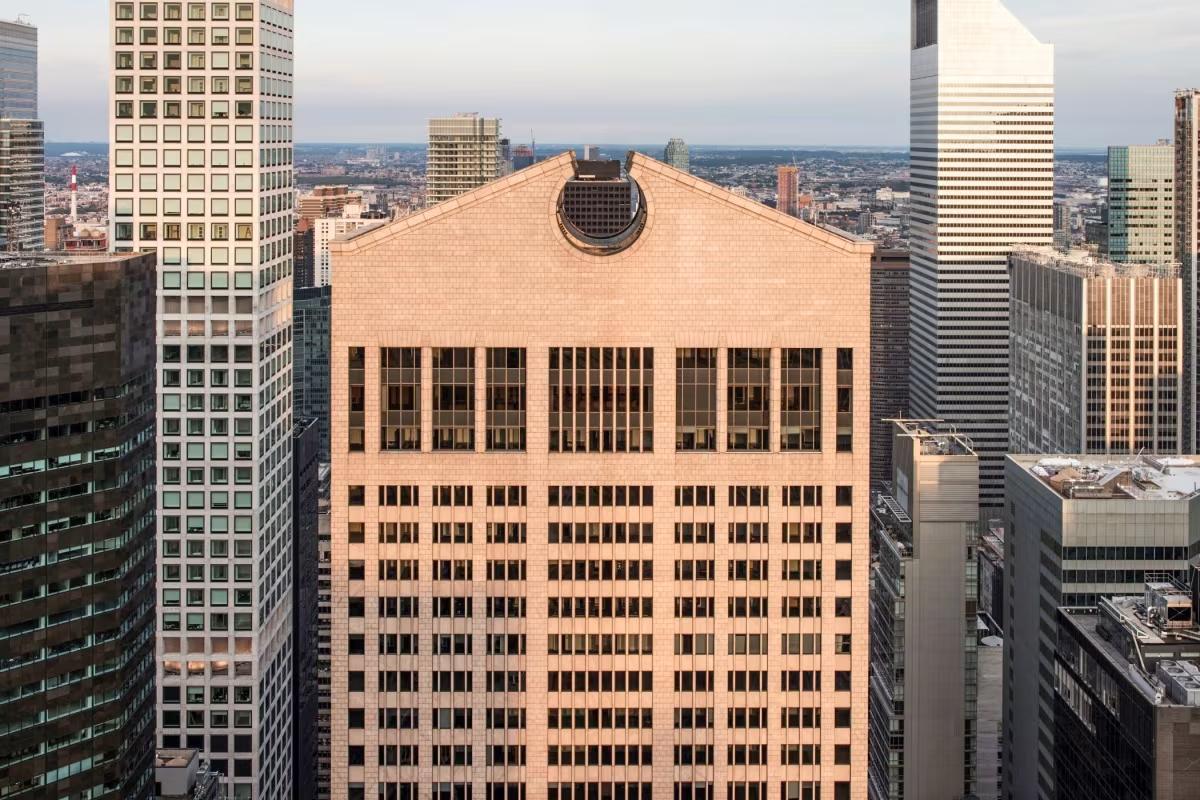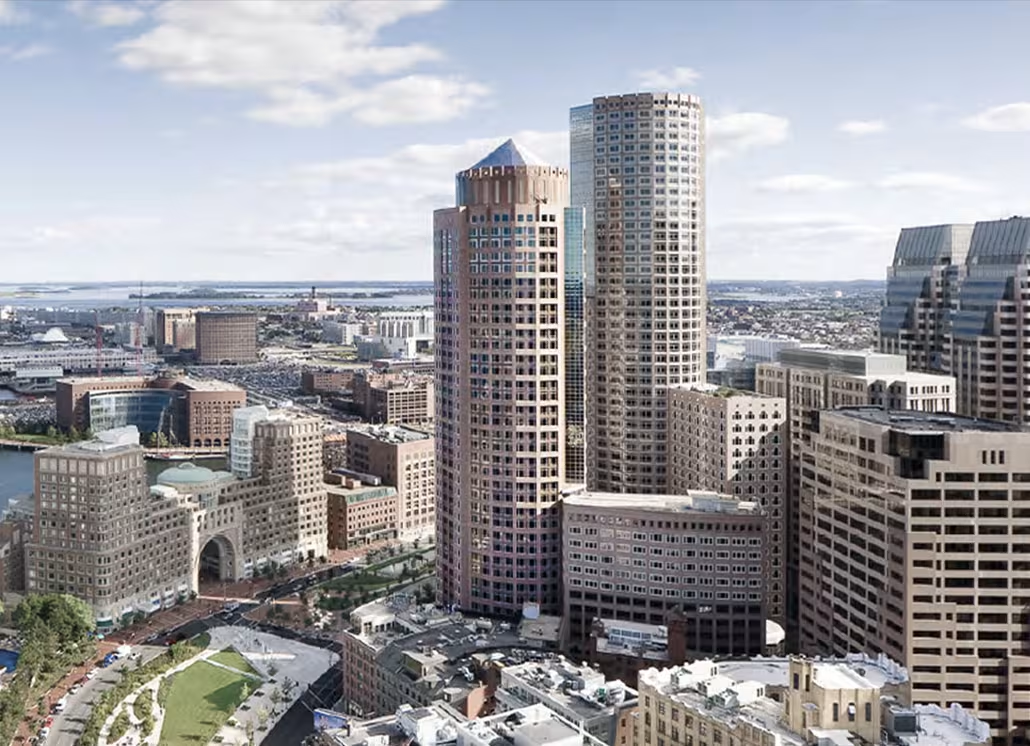550 Madison Avenue vs Two International Place Building


Comparing the 550 Madison Avenue and the Two International Place Building is compelling because they were both designed by Johnson/Burgee Architects, yet they stand in different cities (New York, NY and Boston, MA), and were completed more than 8 years apart.
What this will allow us to see, is how the same firm's approach adapted to different places at roughly the same time (8 years isn't that much time when it comes to urban context and architecture).
Height & Size
The 550 Madison Avenue is clearly the larger tower of the two, both in terms of height and number of floors. It rises to 646ft (197m) with 37 floors above ground, while the Two International Place Building reaches 538ft (164m) with 35 floors above ground.
Of course, each project may have faced different briefs or regulatory constraints, which we don't really know about and could also explain the outcome.
Architectural Style
Both the 550 Madison Avenue and the Two International Place Building were designed in line with the aesthetic conventions of the Postmodernism style.
The Two International Place Building was designed at a moment when the Postmodernism style was already in decline, making it more of a lingering expression of the movement. In contrast, the 550 Madison Avenue was built when the style still carried greater cultural weight.
Uses
Both the 550 Madison Avenue and the Two International Place Building were designed to serve as commercial towers, and that has remained their main use since their completion, serving similar roles in the urban fabric.
The 550 Madison Avenue also provides 20 parking spaces.
Structure & Facade
The two towers rely on different structural systems, reflecting distinct engineering strategies.
The 550 Madison Avenue uses a Frame structural system, which relies on a regular grid of columns and beams to sustain its weight, while the Two International Place Building uses a Framed Tube In Tube system, that combines a strong central core with a perimeter tube of columns.
Yet, when it comes to their facade, they both employed the same solution, a Modular facade.
A modular facade is made of prefabricated panels, sometimes resembling stone or masonry, combined with smaller windows. It provides variety while maintaining efficiency in installation.
| 550 Madison Avenue | Two International Place Building | |
|---|---|---|
| Johnson/Burgee Architects | Architect | Johnson/Burgee Architects |
| 1981 | Construction Started | 1987 |
| 1984 | Year Completed | 1992 |
| Postmodernism | Architectural Style | Postmodernism |
| Commercial | Current Use | Commercial |
| 37 | Floors Above Ground | 35 |
| 197 m | Height (m) | 164 m |
| 25 | Number of Elevators | 38 |
| Frame | Structure Type | Framed Tube In Tube |
| Steel | Vertical Structure Material | Steel |
| Concrete And Steel | Horizontal Structure Material | Reinforced Concrete |
| Yes | Facade Structural? | Yes |
| William Crow Construction, And HRH Construction | Main Contractor | Turner Construction |
| American Telephone & Telegraph | Developer | The Chiofaro Company |
| Leslie E. Robertson Associates | Structural Engineer | McNamara/Salvia, Inc. |
| NY | State | MA |
| New York | City | Boston |
| 550 Madison Avenue | Address | 2 International Place |